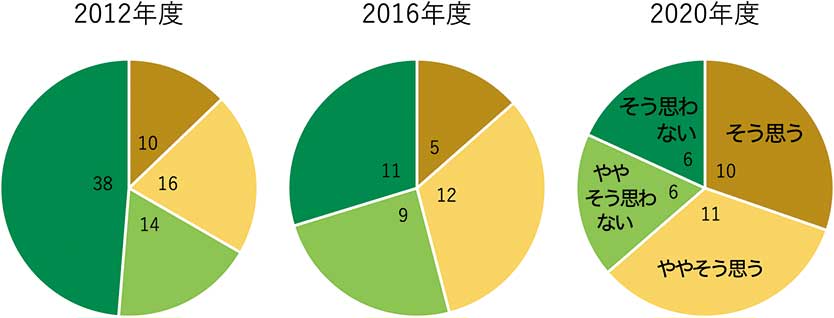Disclaimer: machine translated by DeepL which may contain errors.
Expanding Diversity in Science
Kotaro Kohno (Head of Department for Gender Equality / Professor, Department of Astronomy)

The University of Tokyo has shown a strong commitment both at home and abroad to increasing diversity on campus. In the recently announced UTokyo Compass [1], newly appointed President Fujii clearly emphasized the importance of creating new value by broadening perspectives through mutual exchange and dialogue among members of diverse backgrounds and origins. In the plan to achieve this goal, the university aims to achieve a ratio of 30% women among students and 25% or more among faculty members. In light of this situation, we have decided to publish a series of three articles on the efforts of the Faculty of Science and Graduate School of Science to increase diversity, especially in the area of gender equality. In the first installment, Director Kono will introduce the activities of the Office for Gender Equality. The second article will be contributed by Dr. Hiromi Yokoyama (Kavli Institute for the Physics and Mathematics of the Universe), and the third article by Dr. Makiko Sasada (Graduate School of Mathematical Sciences), and we hope to provide an opportunity to deepen the discussion on the relationship between science and diversity with you.

| The results of female students' answers to the question, "Do you feel that you have difficulties in your work because there are few women in your group? The numbers indicate the number of responses. The numbers indicate the number of responses. |
The main activities of the Office for Gender Equality in the Faculty of Science are the following four items. (1) Activities to promote the number of female students who are interested in Science and who will enter the Faculty of Science. This includes providing voices of current students and graduates and presenting them as role models. (2) Organize round-table meetings for female students to support connections among female students and female faculty members in the Faculty of Science and Graduate School of Science. (3) Establishment and operation of a childcare support room and a rest room for all members. (4) Conducting awareness surveys and educational activities for all members.
Regarding (1), we have continued to hold a question-and-answer session for female junior and senior high school students held in conjunction with the summer open campus and the "Future of Female Junior and Senior High School Students at the Faculty of Science" event to promote the advancement of female students to higher education. Both of these events have received a very positive response from the participants, and we hope that as many students as possible will apply to the Faculty of Science. Please refer to the article [2] in the September issue of the Faculty of Science News as well as the detailed article [3] on the page of the Office for Gender Equality, The University of Tokyo, for more information on the events held this year. As for (4), we conduct a questionnaire survey of undergraduate and graduate students and faculty members once every four years. Figure 1 shows an example of the results. Although it is necessary to take into account that the response rate of this year's survey was only about 10%, it is certain that a certain number of female students feel uncomfortable in some way. Female students also commented that "the small number of women in the University of Tokyo as a whole has become so commonplace that many people do not realize that this is a special situation," "gender should have nothing to do with excellence, so few people understand why the current ratio of female students is the way it is," "the way of working that prioritizes career, and the way of working that prioritizes family and building a career slowly while taking care of one's own family. I would like to see a society where people can work slowly to build up their careers while prioritizing their careers and families, and where people can play diverse roles in society.
In order to improve this situation, it is also important to encourage the members of the Faculty Council. Last year, during the FD by then Executive Director and Vice President Norio Matsuki, he reminded us of how easily unconscious bias can be introduced, citing the case of a university (Faculty of Science) in the U.S. (comparing the evaluation of application documents with the same content but with different names [4]). In addition, materials from the awareness-raising seminar for managers conducted by the university-wide Gender Equality Committee and a set of questions prepared by the Graduate School of Engineering [5] were also shared. The Faculty of Science Advisory Council has pointed out [6] that we need to be bolder in our efforts, and we would like to find ways to improve while continuing to make such steady efforts.
[1] https://www.u-tokyo.ac.jp/focus/ja/articles/z0508_00110.html
[2] https://www.s.u-tokyo.ac.jp/ja/story/newsletter/page/7535/
[3] https://www.u-tokyo.ac.jp/kyodo-sankaku/ja/campusvoice/2021_02.html
[4] C. A. Moss-Racusin et al. PNAS, 109, 16474-16479 (2012)
[5] https://www.u-tokyo.ac.jp/kyodo-sankaku/ja/resources/links/2021_pi.html
[6] https://www.s.u-tokyo.ac.jp/ja/story/newsletter/page/7348/
Published in Faculty of Science News, November 2021


